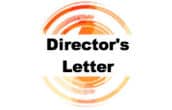|
|
Ethical Journalism News And Debates
|
| The summer months are normally a quiet time, but we have been busy with new and important developments for the EJN:
In Palestine the EJN programme on ethics and training to combat hate speech has inspired an unprecedented agreement on co-operation between the journalism departments of local universities. For the first time AL Najah University in Nablus, Birzeit University, Bethlehem University, Alquds University, Hebron University and Modern Community College on the West Bank have agreed to work together with the Palestine Journalists Syndicate and other EJN partners to launch a Palestine section of the EJN on November 25th.
The launch meeting will also include a special session on the links between academic freedom and press freedom, two branches of free expression which have come under pressure in the region and which have been brought into joint focus thanks to EJN work.
In China the EJN Director carried out a country mission at the invitation of the All-China Journalists Association in July. He visited newly-formed Ethical Journalism Commissions established in Shanghai, Wuhan and Beijing where he held a seminar on media self-regulation with leading media representatives. A full report with recommendations for further co-operation with Chinese media will be considered by the EJN board which meets in Oslo on August 11th.
Continue …
|
|

|
|
| Broadcast interview of Jean Kambanda in prison allowed him to reverse his confession and thereby falsify history, writes Linda Melvern. (Read more on The Guardian) |
|
| A growing number of specialized Spanish-language websites are emerging for journalists who cover specific beats. From crime to climate change, journalists in Latin America now have statistics and sources in their language that are just a keystroke away– no inaccurate Google translations necessary. (Read more on IJNET) |
|
|
|
| The Ombudsman’s office serves primarily as a liaison between the newsroom and listeners, to make the newsroom leaders aware of how listeners feel and help listeners understand why the newsroom makes the decisions it does. I investigate listener concerns and issues of journalism ethics and occasionally suggest changes. I have no management authority, however; the newsroom can take my suggestions (or not). I don’t speak for the newsroom or for NPR—just for myself—and I don’t have the power to print a correction or set policy.” (Read more on NPR) |
|
| The online news business has been enriched by an unprecedented openness to an expanded array of sources, and technology has sensitized it to the demands of its users. Now it’s reaching back to reprofessionalize itself, so that it benefits not just from the new but from the old. (Read more on Unsocial Media) |
|
| One of the things reporters should always be careful about when reporting on research or statistics is sample sizes: the smaller sample, the wider the margin for error when generalising to the population as a whole. But sometimes the sample size is less obvious than you think. (Read more on the Online Journalism Blog) |
|
Reports
|
| The editor of the newspaper Fremover (Forward) in Narvik didn’t put up much of a defence. In an article, based on another newspaper’s reporting, Fremover had claimed that the confidential security plans for the local airport, a joint military and civil installation, had been freely accessible on the servers of the local authorities. When this claim was refuted, the paper had no documentation to the contrary.
The Norwegian Press Complaints Commission (Pressens faglige utvalg, PFU) needed less than ten minutes to reach a unanimous decision that Fremover was in breach of paragraph 3.2 of the code of conduct, the one that states that you should get your facts right.
For those interested in the case, the video from the discussion is still available at the site of the trade publication Journalisten. The complaint was one of a record 212 cases brought before the commission in the first half of 2014, dwarfing the former record of 185 from the first half of 2012.
It was also one where the discussion among the seven members of the commission; two editors, two journalists and three representatives of the public, was being streamed by Journalisten. As part of the commission’s transparency programme, three cases from each meeting are streamed live. The meetings are open to the public, but are held in a conference room with few spare seats.
Read more on Norway in the EJN report The Trust Factor. |
|
| Egyptian media have suffered over the years from political pressure and legal restrictions, but some of its worst problems are self-inflicted. The scourge of paid journalism and an excessive focus on commercial and political objectives have often underpinned a culture of unethical journalism characterised by corrupt practices of employment, advertising disguised as news, and the absence of transparency.
Its most obvious output, advertorials — that is, advertising or special interest information posing as journalism — are frequent, and often hard to detect. But they only represent a window into the myriad aspects of this negative phenomenon.
Read more on Egypt in the EJN report Untold Stories. |
|
|
|
|
|